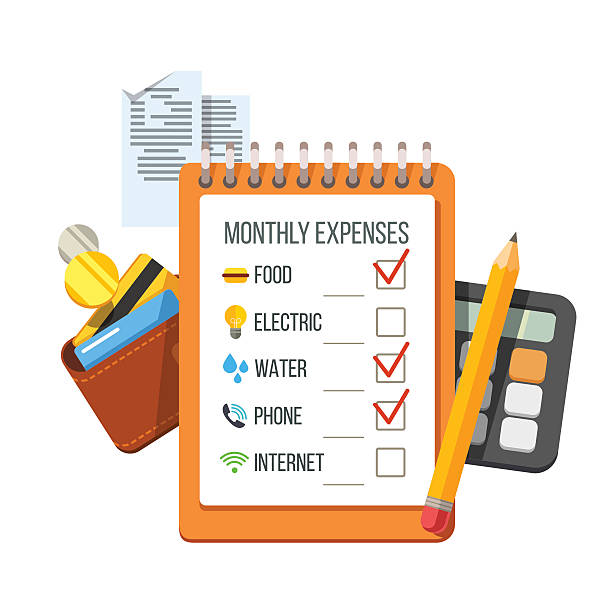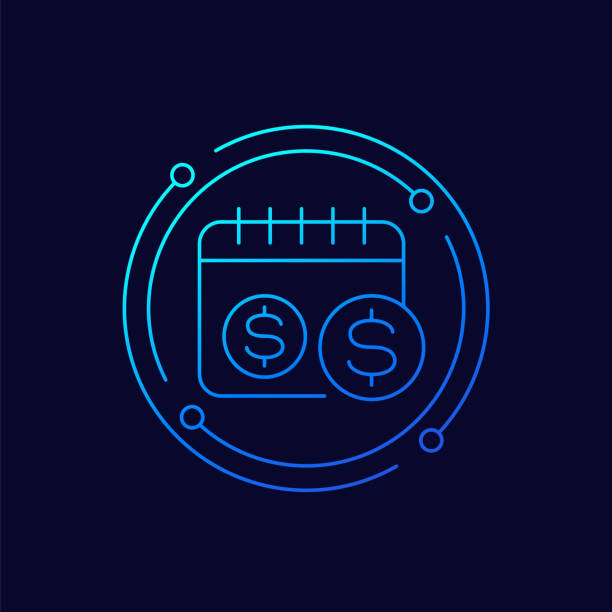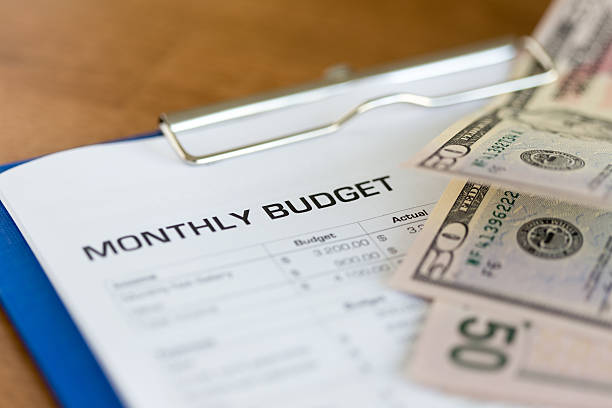Budgeting is the foundation of sound financial management. By creating a monthly budget, you can take control of your spending, save more effectively, and work towards your financial goals. A well-crafted budget helps you understand where your money is going, identify areas for improvement, and make informed decisions about your finances.
In this comprehensive guide, we’ll walk you through the steps to create a monthly budget and provide you with the strategies and resources you need to stick to it. Whether you’re just starting to take control of your finances or you’re looking to refine your budgeting process, this article will equip you with the knowledge and tools to achieve financial stability and reach your long-term goals.
Understanding the Importance of Budgeting
Budgeting is the foundation of sound financial management. By creating a monthly budget, you can take control of your spending, save more effectively, and work towards your financial goals. A well-crafted budget helps you understand where your money is going, identify areas for improvement, and make informed decisions about your finances.
The benefits of having a monthly budget are numerous. Firstly, it allows you to track your income and expenses, giving you a clear picture of your financial situation. This knowledge can help you identify opportunities to cut back on unnecessary spending and redirect those funds towards your savings or debt repayment.

Moreover, a monthly budget can improve your financial discipline and reduce stress about money. When you have a plan in place, you’re less likely to overspend or make impulsive purchases, leading to a more stable financial footing.
Budgeting also enables you to align your spending with your values and priorities. By allocating your resources intentionally, you can ensure that your money is being used to support the things that matter most to you, whether that’s saving for a down payment on a house, paying off student loans, or funding your dream vacation.
In addition to the personal benefits, budgeting can also have far-reaching impacts on your overall financial health. By maintaining a balanced budget, you can build a strong credit score, avoid late payments and overdraft fees, and prepare for unexpected expenses or life events.
Ultimately, creating and sticking to a monthly budget is a powerful tool that can help you achieve financial freedom and security. It’s a crucial step in taking control of your finances and ensuring that your spending aligns with your long-term goals.
Steps to Creating a Monthly Budget

Gather All Your Financial Information
The first step in creating a monthly budget is to gather all your financial information. This includes tracking your income sources, such as your salary, investments, or any side hustles, as well as listing out all of your fixed and variable expenses.
Fixed expenses are those that remain relatively constant each month, such as rent, mortgage payments, or car loans. Variable expenses, on the other hand, fluctuate based on your spending habits, such as groceries, utilities, and entertainment.
When gathering your financial information, be as detailed as possible. Make sure to include all sources of income, even if they are irregular or seasonal. Additionally, be thorough in listing out your expenses, as even small, recurring expenses can add up quickly and impact your overall budget.
Categorize Your Expenses
Once you have a comprehensive list of your income and expenses, it’s time to categorize your expenses. This will help you identify areas where you can potentially cut back and allocate your funds more effectively.
Some common expense categories include:
- Housing (rent/mortgage, utilities, etc.)
- Transportation (car payment, gas, insurance, etc.)
- Food (groceries, eating out, etc.)
- Debt payments
- Discretionary spending (entertainment, clothes, etc.)
- Savings and investments
When categorizing your expenses, be as specific as possible. For example, within the “Food” category, you may want to have sub-categories for groceries, dining out, and other food-related expenses. This level of detail will provide you with a clearer picture of your spending habits and help you make more informed decisions about where to cut back.
Determine Your Monthly Income
With your expenses categorized, the next step is to determine your monthly income. This includes your regular salary, as well as any irregular or fluctuating income sources, such as freelance work or side gigs.
It’s important to be as accurate as possible when estimating your monthly income. If you have variable or irregular income, consider using an average or a conservative estimate to avoid overspending.
Allocate Your Income Across Expense Categories
Now that you have a clear picture of your income and expenses, it’s time to allocate your income across your expense categories. A popular budgeting rule is the 50/30/20 rule, which suggests spending 50% of your income on necessities, 30% on discretionary expenses, and 20% on savings and debt repayment.
However, the ideal budget allocation may vary depending on your individual financial situation and goals. For example, if you’re trying to aggressively pay off debt, you may want to allocate a higher percentage of your income towards debt payments. Alternatively, if you’re saving for a significant purchase, such as a down payment on a house, you may want to allocate more towards savings.
The key is to experiment and adjust your budget as needed to find the right balance that works for you. Pay close attention to your spending patterns and make changes as necessary to ensure that your budget aligns with your priorities.
Track Your Spending and Make Adjustments
Lastly, track your spending and make adjustments to your budget as needed. Review your budget regularly, either weekly or monthly, to ensure you’re sticking to your plan. If you find that you’re consistently overspending in a particular category, make the necessary adjustments to bring your spending back in line.
One effective way to track your spending is to use a budgeting app or software. These tools can automatically categorize your expenses, provide real-time insights into your spending, and even send you alerts when you’re nearing your budget limits. Alternatively, you can use a simple spreadsheet or notebook to manually track your expenses.
Regardless of the method you choose, the key is to stay vigilant and make adjustments as needed. Budgeting is an ongoing process, and being willing to adapt your approach as your financial situation changes is crucial to long-term success.
Tips for Sticking to Your Monthly Budget
Creating a budget is only the first step – the real challenge lies in sticking to it. Here are some tips to help you stay on track:

- Use cash or debit cards instead of credit cards: This can help you avoid impulse purchases and stay within your budget. When you use cash or a debit card, you’re more aware of the immediate impact on your available funds, making it easier to stay disciplined with your spending.
- Automate your savings transfers: Set up automatic transfers from your checking account to your savings account to ensure you’re consistently saving. This “pay yourself first” approach helps you make saving a non-negotiable part of your monthly budget.
- Cut back on discretionary spending: Review your budget and identify areas where you can reduce spending, such as dining out or entertainment. Look for opportunities to cut back on these variable expenses, which can free up funds for other priorities.
- Find ways to reduce fixed expenses: Negotiate with service providers, refinance loans, or explore alternative options to lower your fixed costs, such as your rent, mortgage, or car payment. Reducing these larger expenses can have a significant impact on your overall budget.
- Avoid impulse purchases: Before making a purchase, ask yourself if it’s a necessity or if it fits within your budget. Implement a waiting period, such as 24 or 48 hours, to give yourself time to reconsider the purchase and ensure it aligns with your financial goals.
- Use budgeting apps or spreadsheets: Utilize technology to track your spending and stay organized. Apps like Mint, YNAB, or Google Sheets can help you categorize your expenses, set budget limits, and receive real-time alerts when you’re nearing your spending thresholds.
- Involve your family or partner: If you live with others, consider including them in the budgeting process. Discuss your financial goals and priorities, and work together to create a budget that everyone can commit to. This can help foster accountability and shared responsibility.
- Celebrate small wins: Acknowledging your progress and successes, no matter how small, can help you stay motivated and engaged with the budgeting process. Treat yourself to a small reward when you hit a savings goal or stay within your budget for a specific category.
Remember, sticking to a budget is a practice, and it may take time to develop the necessary habits and discipline. Be patient with yourself and focus on making incremental improvements. Over time, budgeting will become a natural part of your financial routine, and you’ll reap the long-term benefits of greater financial security and control.
Handling Budget Challenges
Even the most well-crafted budget can face challenges, such as unexpected expenses or changes in income. Here’s how to handle these situations:

What to do if you go over budget in a category: If you find yourself overspending in a particular category, don’t beat yourself up. Instead, review your budget, identify the cause, and make adjustments to get back on track. Perhaps you underestimated the cost of a recurring expense, or an unexpected event caused you to overspend in a particular area. By addressing the issue head-on, you can make the necessary corrections and prevent the problem from snowballing.
How to adjust your budget if your income changes: If your income increases or decreases, revisit your budget and reallocate your funds accordingly. This may involve cutting back on discretionary spending or reevaluating your savings and debt repayment goals. For example, if you receive a raise, you might allocate a portion of the additional income towards accelerating your debt payments or increasing your retirement contributions. Conversely, if your income decreases, you may need to prioritize essential expenses and find ways to reduce your discretionary spending.
Strategies for sticking to your budget during unexpected expenses: When faced with unexpected expenses, such as medical bills or car repairs, prioritize your spending, dip into your emergency fund if necessary, and make adjustments to your budget in other areas. By having a well-stocked emergency fund, you can minimize the impact of these unexpected costs on your overall budget. Additionally, look for ways to reduce spending in other categories, such as postponing non-essential purchases or finding less expensive alternatives.
Re-evaluating your budget seasonally or annually: As your financial situation evolves, it’s important to review and adjust your budget accordingly. This may involve changes in your spending patterns, income, or financial goals. For example, you may need to adjust your budget during the holiday season to account for increased gift-giving and travel expenses. Alternatively, if you receive a bonus or a tax refund, you may want to allocate those funds towards specific financial goals, such as paying down debt or increasing your retirement contributions.
By being proactive and adaptable in your approach to budgeting, you can navigate these challenges and maintain financial stability. Remember, budgeting is an ongoing process, and the ability to adjust and adapt your strategy is key to long-term success.
Making Budgeting a Lifelong Habit
Budgeting is not a one-time task – it’s a lifelong habit that can adapt and grow with you. As your financial situation changes, your budgeting approach may need to evolve as well.
Whether you’re single, married, or retired, maintaining a monthly budget is crucial for achieving financial stability and reaching your goals. By incorporating budgeting into your routine and continuously reviewing and adjusting it, you can ensure your finances are aligned with your priorities.

For young adults just starting out, budgeting can help establish healthy financial habits and prevent the accumulation of debt. As you progress through different life stages, such as getting married, starting a family, or retiring, your budgeting needs will likely change. For example, you may need to allocate more towards childcare expenses or healthcare costs in retirement.
Budgeting can also be an essential tool for achieving specific financial goals, such as saving for a down payment on a house, paying off student loans, or building a robust retirement nest egg. By aligning your budget with these objectives, you can make steady progress and ensure that your spending supports your long-term aspirations.
Moreover, budgeting can help you weather unexpected life events, such as job loss, medical emergencies, or natural disasters. By having a solid financial foundation and an emergency fund in place, you can better navigate these challenges without compromising your overall financial well-being.
Ultimately, making budgeting a lifelong habit is a powerful way to maintain control over your finances and adapt to the changing circumstances of your life. It’s a skill that can serve you well throughout your entire financial journey, from your early career to your golden years.
Resources and Tools for Budgeting
There are numerous resources and tools available to help you create and maintain a monthly budget:

Budgeting Apps:
- Mint: A popular personal finance app that automatically categorizes your expenses, tracks your spending, and provides budgeting tools.
- YNAB (You Need a Budget): A comprehensive budgeting app that focuses on the “zero-based budgeting” approach, helping you allocate every dollar to a specific purpose.
- Clarity Money: An AI-powered budgeting app that analyzes your spending patterns and provides personalized recommendations for saving and reducing expenses.
- Goodbudget: A digital version of the envelope budgeting system, allowing you to allocate funds to different categories and track your progress.
Spreadsheet Templates:
- Excel Spreadsheets: Microsoft Excel offers a variety of budgeting templates that you can customize to fit your specific needs.
- Google Sheets: Similar to Excel, Google Sheets provides free, cloud-based spreadsheet templates for budgeting and personal finance management.
- Vertex42: This website offers a wide selection of well-designed, free budgeting templates for Excel and Google Sheets.
Personal Finance Books and Blogs:
- “The Total Money Makeover” by Dave Ramsey: A bestselling book that provides a step-by-step guide to getting out of debt and achieving financial freedom.
- “I Will Teach You to Be Rich” by Ramit Sethi: An accessible and practical approach to personal finance, covering budgeting, investing, and building wealth.
- The Simple Dollar: A popular personal finance blog that offers budgeting tips, money-saving strategies, and financial advice.
- Nerdwallet: A comprehensive personal finance website that includes budgeting tools, credit card comparisons, and financial education resources.
Financial Advisors:
- Certified Financial Planners (CFPs): These professionals can provide personalized guidance on budgeting, investment planning, tax optimization, and other financial matters.
- Robo-advisors: Digital investment platforms that offer automated, algorithm-driven financial advice, including budgeting recommendations.
- Financial Coaches: Specialized coaches who work with individuals to improve their financial habits and achieve their goals.
Remember, the key to successful budgeting is finding an approach that works for your unique financial situation and lifestyle. With the right tools and a commitment to staying on track, you can create a monthly budget and stick to it, ultimately achieving your financial goals.
Frequently Asked Questions (FAQ)
Q: What is a monthly budget and why is it important?
A: A monthly budget is a detailed plan that outlines your income and expenses for a given month. It’s an essential tool for taking control of your finances, as it allows you to track your spending, identify areas for improvement, and make informed decisions about allocating your resources. By creating and sticking to a monthly budget, you can work towards your financial goals, reduce financial stress, and improve your overall financial well-being.
Q: How do I create a monthly budget?
A: To create a monthly budget, you’ll need to gather all your financial information, including your income sources and various expenses. This involves categorizing your expenses into areas like housing, transportation, food, debt payments, and discretionary spending. You’ll then need to determine your monthly income and allocate those funds across your expense categories, aiming for a balanced budget that aligns with your priorities.
Q: What are some tips for sticking to a monthly budget?
A: Sticking to a monthly budget can be challenging, but there are several strategies that can help. These include using cash or debit cards instead of credit cards, automating your savings transfers, cutting back on discretionary spending, finding ways to reduce fixed expenses, and avoiding impulse purchases. It’s also helpful to use budgeting apps or spreadsheets to track your spending and stay organized.
Q: How do I handle budget challenges, like unexpected expenses or changes in income?
A: When faced with budget challenges, it’s important to be flexible and adaptable. If you go over budget in a particular category, review your spending and make the necessary adjustments. If your income changes, either up or down, revisit your budget and reallocate your funds accordingly. For unexpected expenses, prioritize your spending, dip into your emergency fund if needed, and find ways to cut back in other areas. Regularly reviewing and adjusting your budget as your financial situation evolves is key to maintaining financial stability.
Q: Why is making budgeting a lifelong habit important?
A: Budgeting is not a one-time task, but rather a lifelong habit that can adapt and grow with you. Maintaining a monthly budget is crucial for achieving financial stability and reaching your goals, regardless of your life stage. By incorporating budgeting into your routine and continuously reviewing and adjusting it, you can ensure your finances are aligned with your priorities, whether you’re single, married, or retired.
If you have any doubts or queries, feel free to write to us. It would be a great pleasure to help you out.
